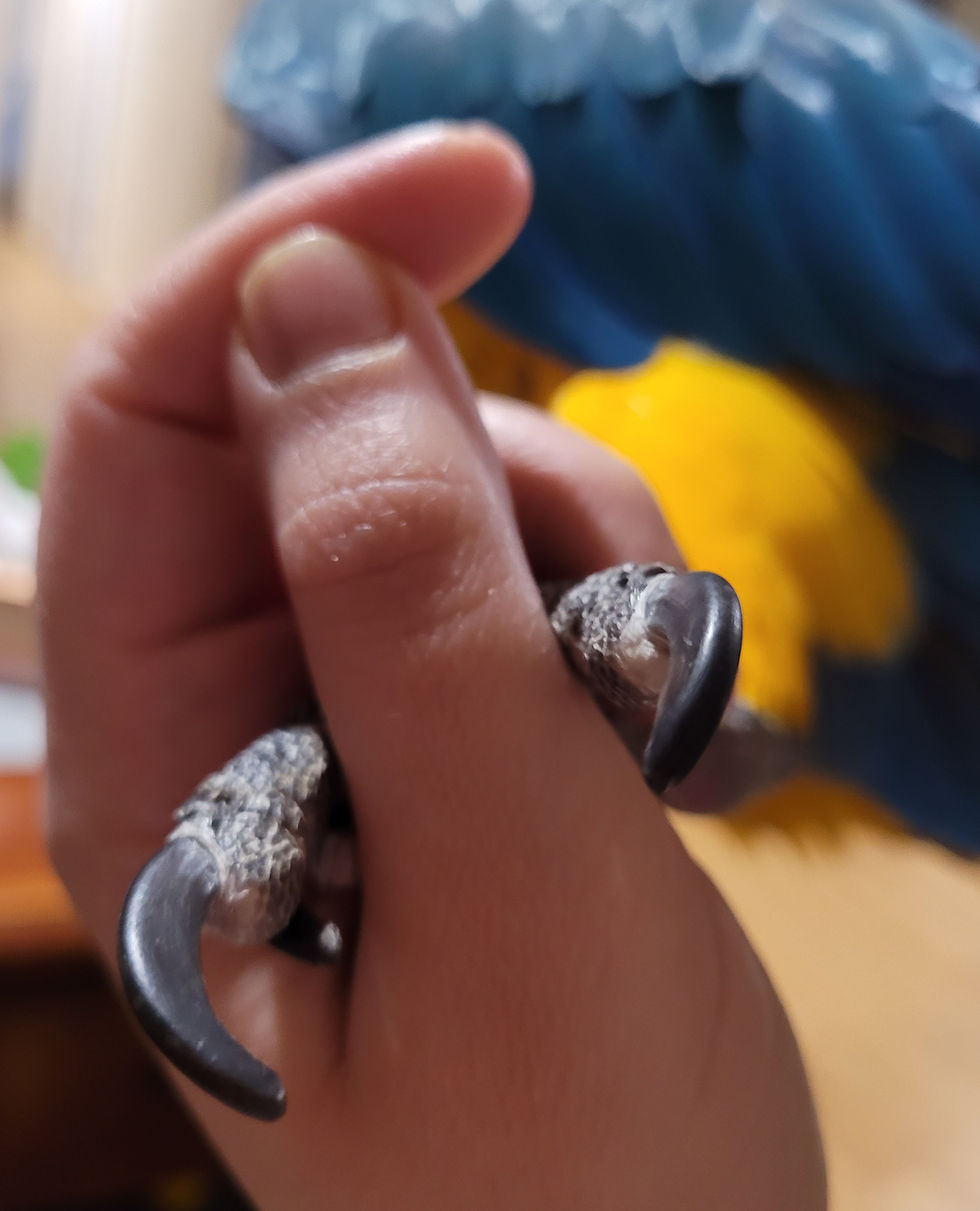Hand-Fed vs Hand-Raised: Understanding the Key Differences for Your Bird’s Behaviour
- Jasmine Baldacchino

- Sep 17, 2025
- 2 min read

You might be wondering about the terms hand-raised vs hand-fed. At first they sound the same, but they describe very different approaches to raising baby parrots—and the distinction can have a lasting impact on a bird’s behaviour, adaptability, and overall well-being.
Hand-fed refers to a baby bird that was given food by a human, but this alone doesn’t indicate the level of interaction or socialisation the bird received. In large-scale breeding operations, where many birds are raised at once, individual attention is often limited. As a result, these birds may lack essential socialisation skills, making them more prone to fearfulness, stress, or difficulty adapting to new environments. In a new home, this can manifest as hesitation to interact, reluctance to explore, or defensive behaviours such as biting or retreating. Without proper socialisation, these birds may also struggle with new experiences, making training and trust-building more difficult.

Hand-raised refers to a baby bird that has been fed by a human but also received consistent, positive interactions throughout their early development. This includes gentle handling, exposure to different environments, and opportunities to explore and interact with enrichment. Proper hand-raising helps build a bird’s confidence, adaptability, and ability to engage positively with humans and their surroundings. Birds raised this way are more likely to adjust smoothly to a new home, form healthy social bonds, and participate in training without excessive fear or stress.
Because parrots are such long-lived companions, choosing the right breeder is one of the most important decisions you can make. A breeder who focuses on both proper hand-raising practices and the overall health of their birds helps ensure you bring home a parrot that is physically sound, confident, and well-prepared for life in a family environment. In contrast, birds from large-scale or poorly managed breeding operations may face preventable health concerns or struggle with long-term behavioural challenges, which can affect both their well-being and your relationship with them. Taking the time to select a breeder carefully is an investment in a healthy, happy future together.

Understanding this difference can help new bird owners set realistic expectations and provide the right support to help their bird thrive. While a hand-raised bird is often more confident and social, a hand-fed bird can still develop strong, positive relationships with their owner with the right approach. If your bird was hand-fed and seems fearful or reluctant, it's important to be patient and consistent. Using positive reinforcement techniques, allowing the bird time to adjust, and providing plenty of opportunities for interaction and enrichment can help them gradually build confidence and develop the social skills they need for a fulfilling life in your home.
If you need help choosing a breeder for your bird, or maybe you already have your bird and need a little help settling them in, then reach out!


.png)



Comments